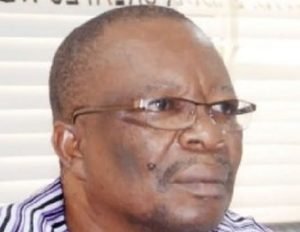In recent times, there has been an upsurge in the establishment of government-owned tertiary institutions in Nigeria. This trend has brought to the forefront, the debate on whether the focus should be on quantity or quality. Gom Mirian writes that while some stakeholders believe that more institutions are needed to cater for the increasing number of students seeking admission into tertiary institutions, others argue that Nigeria is sacrificing quality on the altar of quantity as the higher education system is facing significant challenges in meeting its core mandates due to a lack of adequate funding.
The debate on whether Nigeria needs more higher institutions has again been brought to the fore following President Bola Tinubu’s recent approval for the conversion of four Colleges of Education into Federal Universities of Education, two Federal Universities of Agriculture, and two Federal Universities of Medical and Health Sciences.
The reality on the ground paints a grim picture. Existing institutions in Nigeria’s higher education sector face a dire financial crisis, resulting in dilapidated infrastructure, outdated facilities, and a decline in the quality of education provided. The national President of the Academic Staff Union of Universities (ASUU), Prof. Emmanuel Victor Osodeke, emphasises the severity of the issue by pointing out, “Funding for higher education in Nigeria is grossly inadequate, leading to poor infrastructure and lack of modern training facilities.”
Prof. Osodeke, in an interview with Africa Health Report (AHR), expressed deep concerns over the establishment of new institutions without adequate considerations put into place, including funding.
He noted: “The establishment of new universities, colleges and institutions should be based on the availability of resources, the need of the host community, and the capacity of the existing institutions to absorb more students. Anything short of this will lead to underfunding, understaffing, and declining quality of education.
“While it is commendable that the government acknowledges the need for more tertiary institutions, the lack of funding poses a significant challenge. Many existing institutions are already grappling with underfunding, leading to a decline in the quality of education provided. Establishing more institutions without fixing these financial deficiencies will only exacerbate the problem.”

Access Over Quality
Government officials defend the approval of new tertiary institutions, citing the need for increased access to higher education. According to data from the National Universities Commission (NUC), Nigeria’s enrollment rate in tertiary institutions remains abysmally low compared to other countries with similar GDP per capita. It is argued that establishing more institutions will boost access, allowing more young Nigerians to pursue higher education.
However, the argument of access versus quality remains a contentious issue. Critics say that the government should first provide adequate funding for existing institutions to ensure they can meet the core mandates of providing quality education before thinking of establishing new ones.
“It is preferable to have a few well-funded institutions that can provide quality education than numerous poorly funded institutions that perpetuate mediocrity,” says Prof. Osodoke.
Another key concern surrounding the rapid establishment of new institutions relates to the availability of qualified faculty members to teach in these institutions. Prof. Osodeke highlights this issue, saying, “We already face a shortage of qualified lecturers in existing universities. Establishing more institutions without addressing this shortage will create a situation where we have many inexperienced lecturers, undermining the quality of education.”
Tertiary Institutions Missing Mark on Core Mandates Delovery
Tertiary institutions in Nigeria have three primary mandates: Providing quality education, conducting research, and contributing to national development. According to the President of the Colleges of Education Academic Staff Union (COEASU), Dr. Smart Olugbeko, the capacity of newly established colleges of education to train teachers that will impart quality teaching in the country’s basic education sector is highly in doubt.
He notes, “These institutions will struggle to attract and retain highly qualified lecturers, resulting in a detrimental impact on teacher training, which ultimately affects the quality of our basic education system.”
According to him, “The conversion of colleges of education into universities should not be a unilateral decision taken by the government. It should be based on the needs and preferences of the host communities, the staff, and students.”
Dr. Olugbeko also pointed out that the conversion of colleges of education into universities could lead to the loss of focus on teacher education, which is the core mandate of colleges of education. This could have negative implications for the quality of teachers being produced and the education sector in general, he added.

More Funding, Less Institutions
One way to address the challenge of underfunding is to increase budgetary allocation to the education sector. The UNESCO recommendation of 26% budgetary allocation to education has not been met by the Nigerian government, as has remained below 10% in recent years. This makes it difficult to address the infrastructural and staffing needs of existing institutions, let alone establish new ones.
Another way to address the challenge of underfunding and inadequate infrastructure is through public-private partnership (PPP). The government can partner with private sector players to build and equip new institutions, while also increasing funding to existing ones. This will ensure that the education sector is adequately funded without putting an undue burden on the government.
According to Prof. Osodeke, the Nigerian government can also explore the option of regional or specialised institutions instead of the proliferation of general institutions.
“While the approval of more tertiary institutions in Nigeria may be seen as a step towards increasing access to education, the fundamental issue of underfunding existing institutions should not be overlooked. Nigeria’s higher colleges must prioritise meeting their core mandates by addressing the financial crisis plaguing the sector. It is imperative that the government takes proactive steps to ensure adequate funding, as it is only through quality education that the country can genuinely progress and empower its citizens.”


